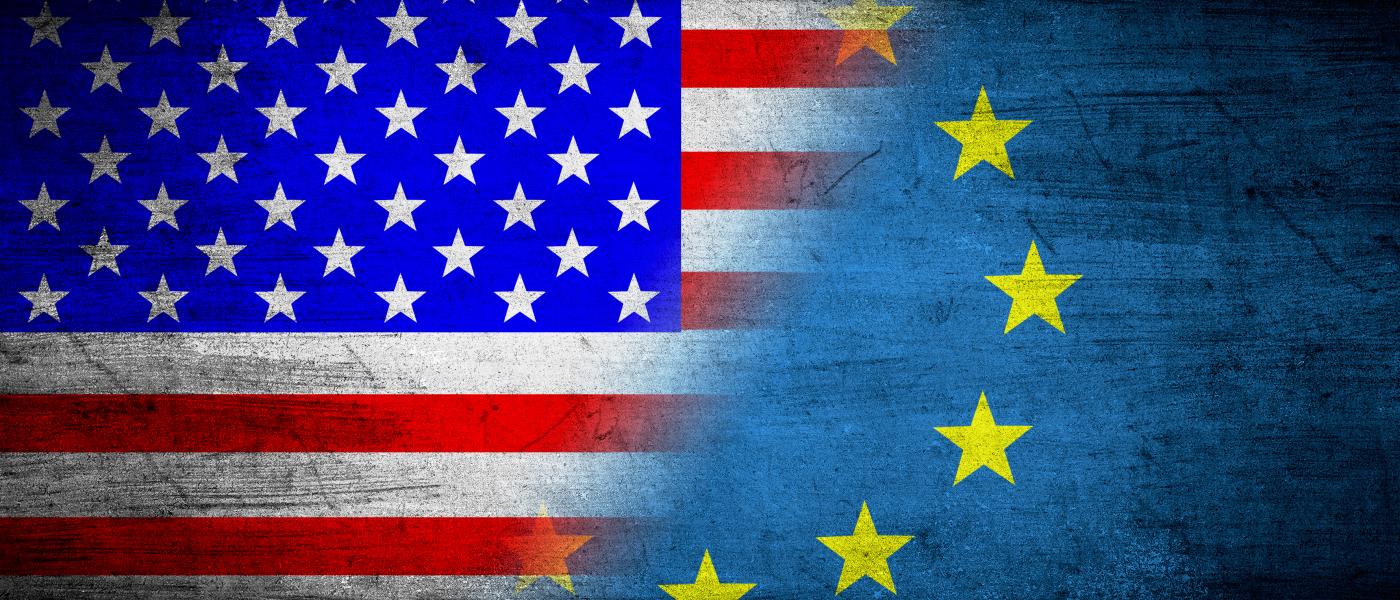This was originally published on GMF’s blog. It was written by Rachel Tausendfreund based on contributions from Kristine Berzina, Jessica Brandt, Peter Chase, Sam DuPont, Lindsay Gorman, Jacob Kierkegaard, Karen Kornbluh, Nad’a Kovalčíková, Ian Lesser, Josh Rudolph, and Bruce Stokes.
President Joe Biden has set out the clear objectives to heal rifts with the United States’ allies and restore its leadership in the world. In the foreign policy realm, the transatlantic relationship is one of the most important things his administration needs to not just repair, but “build back better.” A return to the pre-2016 status quo would fall short of being sufficient—even if it were possible. By making clear and productive offers of partnership straight out of the gate, the Biden administration can do a lot to repair the damaged trust between the United States and its European allies. And by picking the right initiatives, the partnership can be set on a track toward a sustainable alliance fit for the future.
Many challenges that the allies need to address will take vast amounts of will and years of effort—the Transatlantic Task Force that the German Marshall Fund convened in 2020 laid out recommendations, and the European Commission has published its own plan. The NATO 2030 expert group report also provides ideas for the Biden administration. But it is important to focus on quick wins and initiatives that can create early momentum. The shock of the Trump years, which more than a few European policymakers have called a “wake-up call,” cannot be wasted. It will not be easy, and the EU’s new desire for strategic autonomy, most recently exemplified by its new investment deal with China, does not make it easier. The first months of the Biden administration, before a sense of stability settles in, will be the best time for Washington to constructively push its European partners to think bigger and do more—together—and to offer more in return. The transatlantic alliance has been a singularly successful force and it is still needed to address the most pressing global challenges—but it requires a significant remodel to be fit for the new realities.
Below are eight quick-start initiatives on economics and transatlantic security issues, and five recommendations for a democracy and tech agenda that could also provide a few strong action items for Biden’s planned Summit for Democracy.
Already on the Books
President Biden and his foreign policy team have already announced or initiated several actions and priorities that have been heartily welcomed by the EU and signal a reengagement with multilateralism. These include:
- Rejoining the Paris Climate Agreement and adjusting U.S. emissions targets to reach net zero by 2050.
- Reentering the World Health Organization and engaging actively again in the United Nations.
- Extending and building on the New START treaty with Russia.
- Rejoining the Joint Comprehensive Plan of Action if Iran returns to compliance.
- Strengthening NATO and deepening cooperation with partners in the Indo-Pacific.
Eight Quick-Start Initiatives
Economic relations
- Immediately convert the aluminum and steel tariffs imposed by the Trump administration, ostensibly for “national security” purposes, into a short-term “safeguard” action to be phased out in two years.
- Build on the proposed Transatlantic Trade and Technology Council to develop with Europe a joint approach to China on economic issues, including forced technology transfers, intellectual property theft, and unfair industrial subsidies. The council should be led at the vice-presidential level and should endorse the idea of a working group of the U.S. Congress and European Parliament on China ahead of final ratification of the new EU-China CAI agreement. (For more, read the China chapter of the GMF Task Force report.)
- Re-engage with the OECD-led reform of global corporate-tax rules to address the challenges from the rapid increase in transatlantic trade in digitalized services.
- Resolve the Airbus-Boeing dispute—both sides should suspend their penalties that have been sanctioned by the World Trade Organization (WTO) and agree to negotiate full compliance with the WTO decisions within four months. The EU will need to accept that the United States has ended the final tax program benefiting Boeing, while the United States needs to be lenient and accept that Airbus will repay only a portion of the outstanding launch-aid loans on its books. This will set the stage for a revised WTO airplane subsidies code aiming at limiting government-sector support to the development of zero-emission airplanes, thereby indirectly reining in the subsidies of China’s government for national champion Comac. (For more on economic cooperation, read this article by Jacob Kirkegaard or this brief on transatlantic trade.)
- Take immediate steps to reinvigorate and reform the WTO. Resolve the deadlock over the appointment of a new director-general by supporting Ngozi Okonjo-Iweala and engage with the EU at the WTO to quickly end the blockade of appellate-judge nominations through a reform of the body’s working procedures. Questions around developing-nation status and acceptable defensive trade remedies should also be on the agenda of this year’s ministerial conference.
Security and NATO
- Launch a working group at NATO to modernize burden-sharing metrics and devise alternative medium-term, future-oriented capacity goals focused on the broader notion of security rather than purely military capabilities. As the 2 percent goal has become a distraction and may prove impossible to meet in the short-term as the coronavirus recession deepens in many countries, new goals can provide positive incentives. (For more, read Rethink and Replace 2%.)
-
Focus on goals for research and development outputs, establish definite targets, cooperation structures, and implementation plans.
-
The United States, Germany, the United Kingdom, and others could commit substantial resources for higher education in NATO countries to create a young generation of democratically minded entrepreneurs and researchers, by deepening and improving STEM study options as well as training in Chinese and other globally significant languages and cultures in NATO countries. Furthermore, the initiative could establish joint centers of excellence for NATO members on future Internet infrastructure, applications, and governance that would align investments and values. The initiative could also be opened to democratic allies in the Indo-pacific as part of a strengthened partnership. (For more, read the Alliance for Securing Democracy’s Task Force report.)
-
Investments should be made to build sustainable off-ramps for countries that currently use high-risk technologies and to develop foreign investment and technology transfer screening mechanisms to secure sensitive infrastructure and tech in NATO countries. This could also be extended into partnership programs. (For more on this and other recommendations, read this report or this paper on Future Internet.)
-
- Move quickly to stabilize relations with Turkey. The United States will have to hold fast on demanding policy change on its purchase of the Russian S-400 air defense system and sovereignty claims in the eastern Mediterranean, including through Countering America’s Adversaries Through Sanctions Act sanctions levied on Turkey’s defense procurement agency. Washington should offer a plan for Turkey to acquire Patriot batteries and to ease out of S-400 stance painlessly. This could involve a tacit decommissioning of the system or some form of enhanced safeguards on its use. The United States may also have to offer some incentives in exchange such as closer coordination on northern Syria and, under certain conditions, a return for Turkey to participation in the F-35 program.
- Meet with European partners amid initial New START extension discussions to a coordinate a joint approach and common aims for a renegotiation.
Starting Points of a Democratic Tech Agenda
If President Biden’s planned Summit for Democracy is to matter, it will need to set actionable goals. Biden has also expressed the intention to address technological threats together with U.S. allies and to develop democratic alternatives to Chinese technologies, including 5G networks. While there is much more to global democracy than tech, there is no future for democracy without democracy-supporting technological solutions. Below are recommendations for a democratic tech agenda, including measures to combat corruption, that could be addressed and developed at the Summit for Democracy, but should in any case be pursued by the Biden administration and its democratic partners.
1. The United States and its democratic allies should create incentives and support for collaborative research.
-
Democracies should provide greater financial and regulatory incentives for science and technology partnerships, including pre-competitive collaboration on research and development in artificial intelligence (AI) and data science, advanced battery storage, advanced semiconductors, genomics and synthetic biology, autonomous vehicles, smart-building technology, 5G and successor generations of telecommunications technology, quantum information systems, and robotics. (For more, read the GMF Task Force’s tech chapter.)
-
More democratically compatible AI is possible and should be supported. New research in “privacy-preserving” machine learning could enable data collection for AI systems that does not compromise privacy. Similarly, there are “Explainable AI” models that could facilitate accountable AI decision-making. A significant joint investment in developing these technologies would signal that democracies are serious about citizens’ rights, and serious about investing in tech solutions that are rooted in democratic values. (For more, read Silicon Curtain.)
2. Update and Unify Export Controls on Sensitive Technology
Democratic governments can work with the international tech community to help guide the ethical application of its developments through export controls and other steps to prevent technology being abused by governments. The United States and its democratic partners should build on recent reforms of U.S. law and should update the technology controls of the Wassenaar Arrangement—the multilateral export-control regime for conventional arms and dual-use technologies—with regard to trade with China, Russia, Iran, and others. The new arrangement should include items such as AI, robotics, 3D printing, quantum computing, semiconductor manufacturing equipment, surveillance equipment, and other emerging and foundational technologies with significant national security value. (For more, read the GMF Task Force Report, How Democracies Can Offset Autocratic Advances, or this article by Lindsay Gorman on tech exports to China.)
3. Increase Allied Coordination and Activity in International Standards Bodies
One reason China is writing the new global rules at international standards bodies is that the United States and its allies are not coming together to defend their shared values or to clarify what they mean in the digital arena. An alliance of democracies such as the proposed D-10, in coordination with the private sector, should conduct ongoing monitoring and assessment of the proceedings of international standards bodies (such as the Third Generation Partnership Project, the International Telecommunications Union, and the International Organization for Standardization). This effort should provide an allied coordination function in advance of key meetings on standards that implicate democratic governance, as well as ongoing assessment of actions by China to advance specific features that advantage Chinese companies or promote authoritarian Internet governance norms in infrastructure or application standards. The D-10 should also build a minimum common understanding of governance norms that should shape a democratic Future Internet and work to install democratic leadership in key positions and focus groups. (For more, read this paper on the Future Internet or Linking Values and Strategy.)
4. Coordinated Platform Regulation: A Digital Code of Conduct
The United States and Europe can cooperate on changing Internet platforms’ incentives-setting that make it easy to spread conspiracy theories and endanger society, thus turning deceptive design into more democratic design. The industry should make a high-level commitment to democratic design through a digital code of conduct. Each platform should also make its own implementation commitments to which it will be held accountable. The code would be designed by the companies but overseen by regulators.
-
A new digital code of conduct committing online platforms to democratic design would include circuit breakers, such as those used by high-frequency traders on Wall Street, to slow the viral spread of dangerous lies. Other types of friction, such as stopping recommendations or limiting shares, would help as would the accountability that comes from letting third parties audit platform data flows.
-
A code would provide clear, useful information about the trustworthiness of news outlets, using rankings from organizations such as NewsGuard. And platforms would commit to greater transparency about how they enforce their terms of service, making it difficult to bend rules to accommodate repeat offenders and providing greater confidence in choices.
-
The European Union’s proposed Democracy Action Plan and Digital Services Act contemplate a code such as this, to be enforced not only by strengthened transparency but regulation designed to reduce risk. The United States could leverage the Federal Trade Commission’s consumer-protection authority. Working together Europe and the United States can create an accountable, interoperable code that can form a blueprint for a global framework. (For more read this recent op-ed or Safeguarding Democracy.)
5. Combatting Corruption and Kleptocracy
President Biden has been vocal about the emergence of strategic corruption as a tool of foreign policy, as well as about the threat that foreign dark money poses to democracy. His national security advisor sees “combating corruption and kleptocracy” as one of the administration’s most important goals. When announcing plans for the Summit for Democracy, Biden pledged: “I will issue a presidential policy directive that establishes combating corruption as a core national security interest and democratic responsibility, and I will lead efforts internationally to bring transparency to the global financial system, go after illicit tax havens, seize stolen assets, and make it more difficult for leaders who steal from their people to hide behind anonymous front companies.” In the months ahead, while the administration’s top leadership and the nation’s public-health and economic experts focus on ending the pandemic and rebuilding the economy, the U.S. national security and financial enforcement community should get to work laying the groundwork for powerful anti-corruption executive actions (including major financial-integrity reforms long blocked by special interests in the United States) to be announced in time for the Summit for Democracy. (For more read this report on covert money.)
-
U.S. diplomats should leverage those plans to insist that countries attending the summit make similarly hard anti-corruption commitments, setting a high bar for admission. For the United Kingdom, this might entail authorizing the National Crime Agency to launch investigations into the nine elite Russian expatriates named in the classified annex of the parliament’s Russia report. For Europe as a whole, a strong area for commitments would be consequences (including sanctions) for holdout financial secrecy havens, including far-flung jurisdictions around the world that enable international tax dodging and flows of dirty money.
-
Foreign aid budgets geared toward the anti-corruption element of democracy promotion should be ramped up considerably, while Magnitsky sanctions should be internationalized.
-
Establish a North Atlantic Development Organization or a new mechanism to serve as the center for democracy and development cooperation. The United States and European Union along with European countries are the largest development providers globally, and their resources and soft power need to be better leveraged and coordinated. This development cooperation globally should include democracy promotion, strengthening independent media, rule of law and combatting corruption, and support for civil society and transparent market-oriented economies.
The views expressed in GMF publications and commentary are the views of the author alone.









